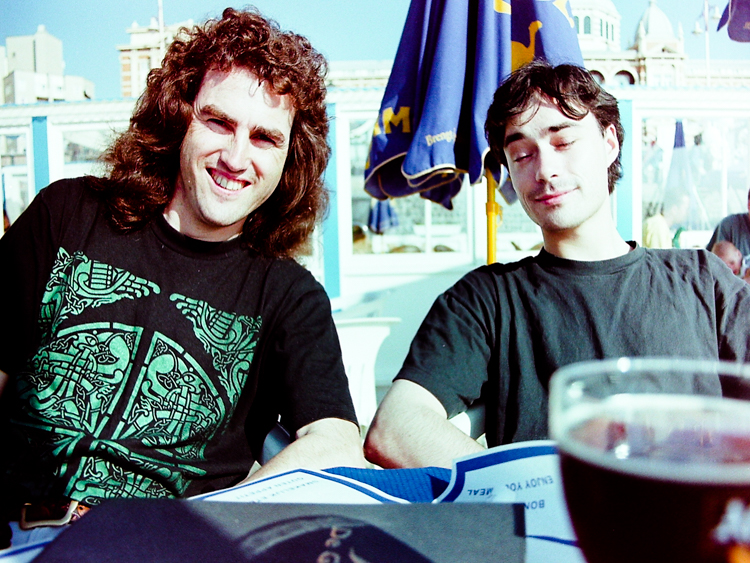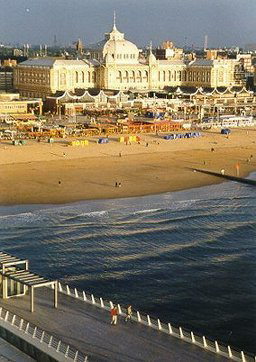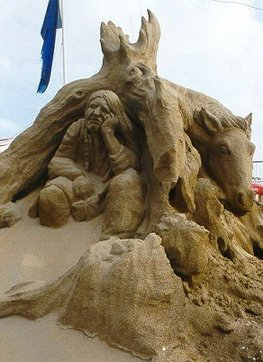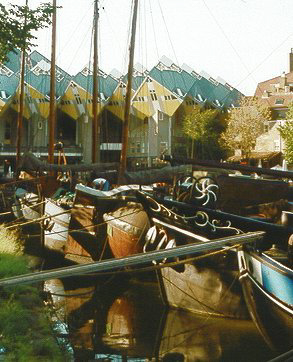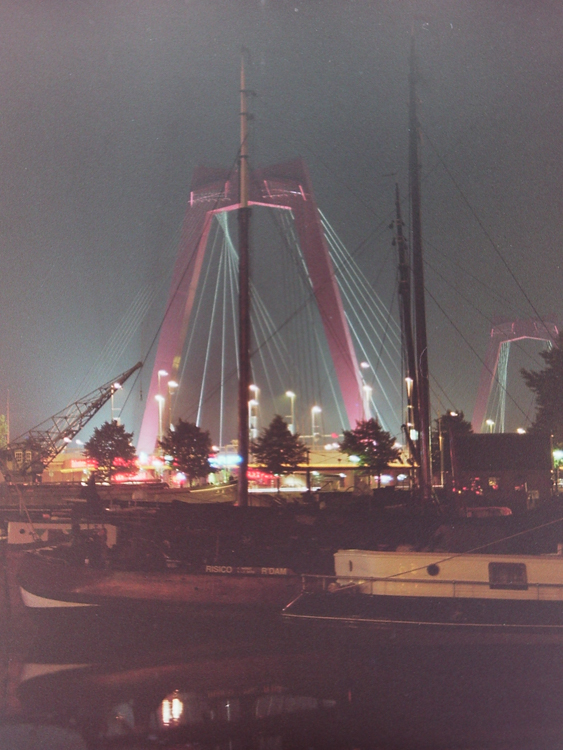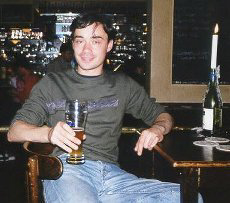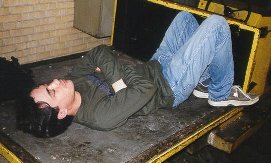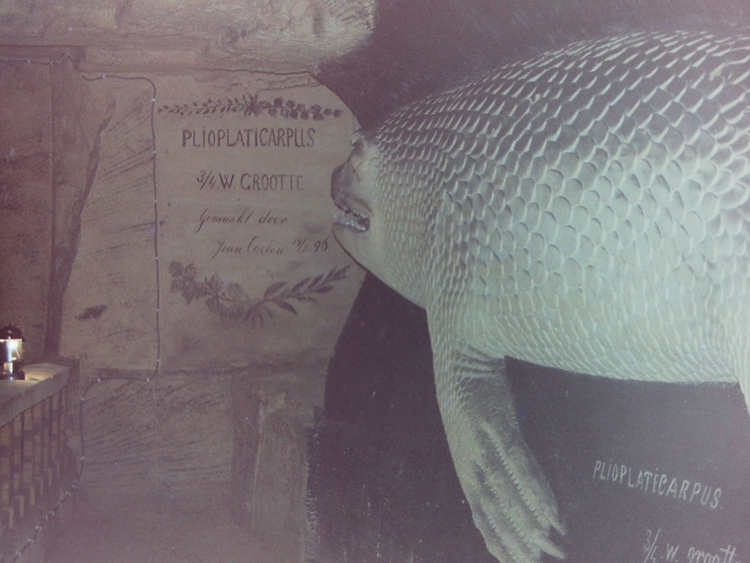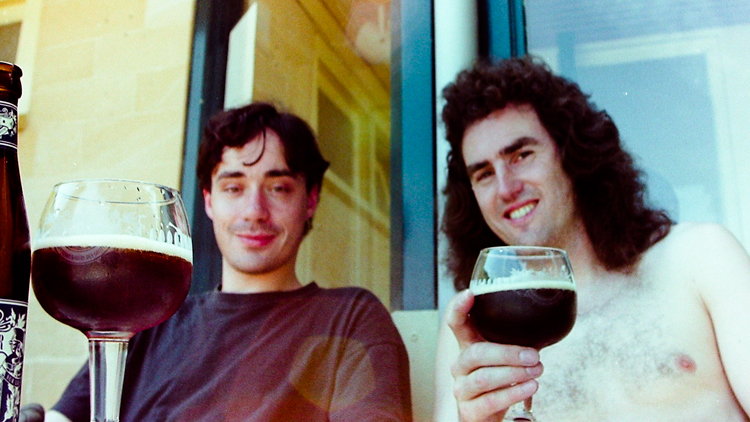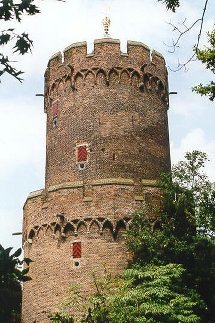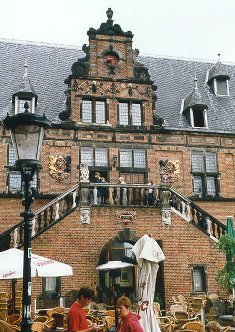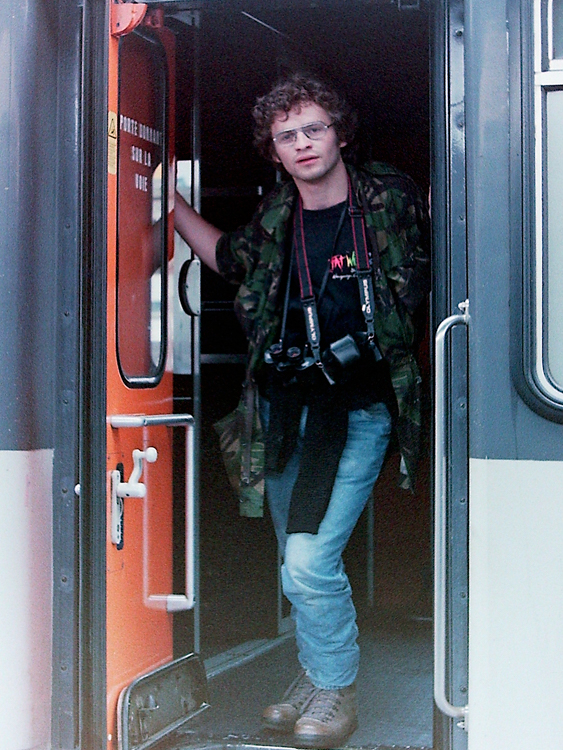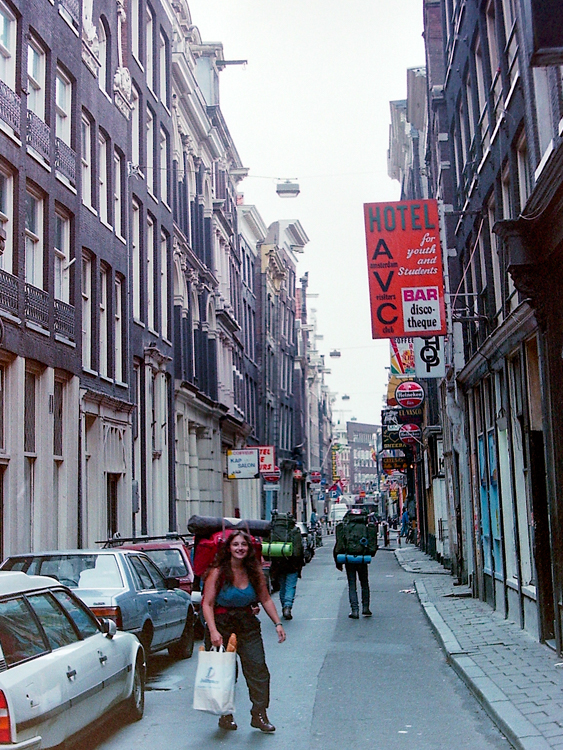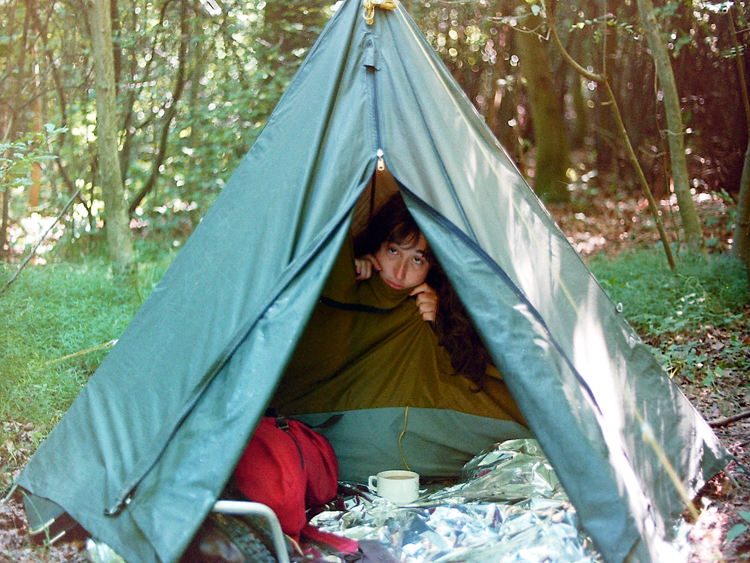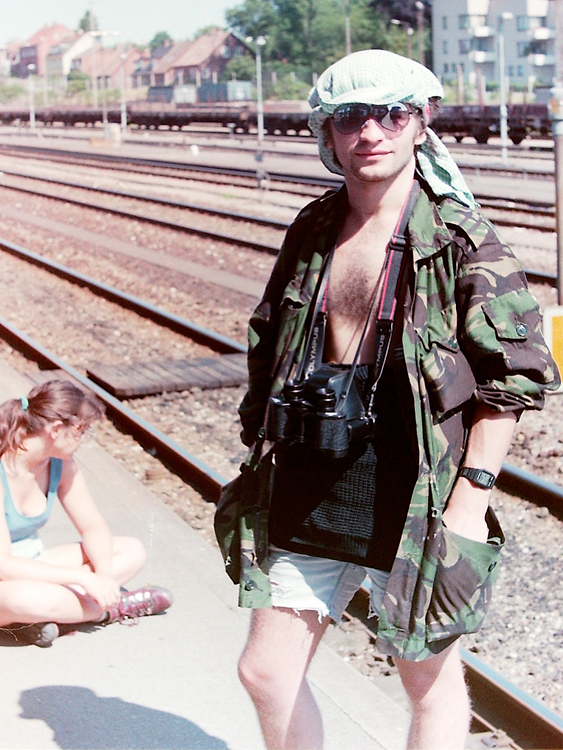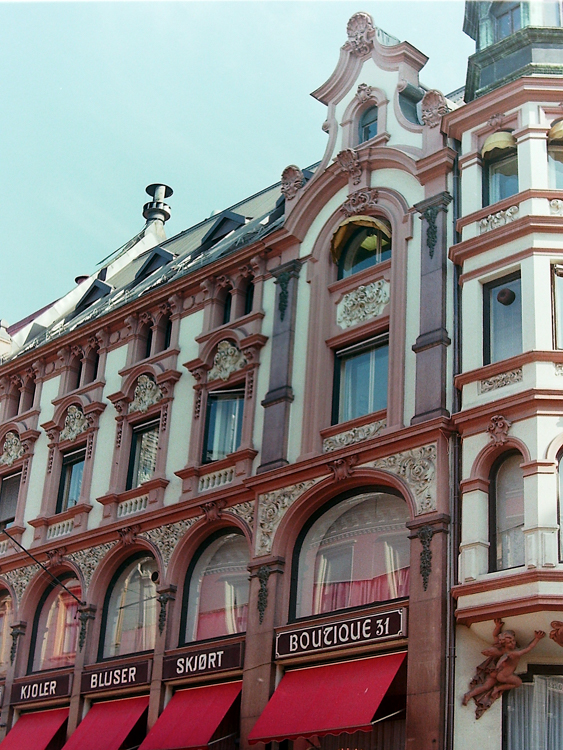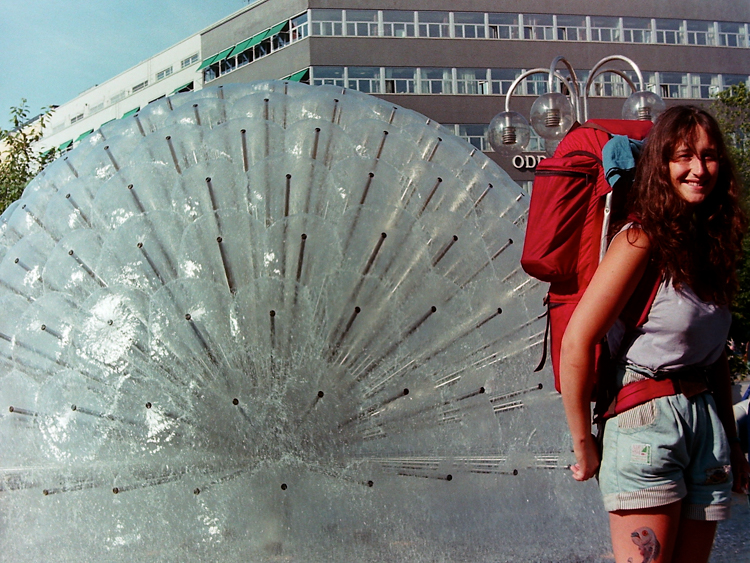It all started so innocently when, after several years of living and working in the Netherlands, I finally tired of relying on the Dutch public transport system. Although the network of trams, buses and trains is undeniably good value and very efficient, I prefer not to be tied to somebody else’s timetable, and wanted to find some more flexible way of getting to work. To this end, I resolved to buy a motorcycle.
There are fundamental differences between the most similar of cultures. Even when you’ve lived abroad for years and really think that you’re coming to terms with your new home, basic assumptions built-in from your mother culture can still rear up and bite you in reminder of the fact that you are, after all, an alien. Although it is probably true that, deep down, people are all the same, the way that they run their countries most certainly is not. The laws and people of the Netherlands are among the most easy-going and permissive in the world. You can do pretty much anything you like, anywhere you like, and unless you are actually causing pain then it is unlikely that anybody else will try to interfere. The police tend to joviality, the general public are friendly, and the working conditions are second to none. However, in all this clear-sightedness, there is one enormous blind spot: As a nation, the Dutch are utterly addicted to bureaucracy. Filling in forms and dealing with officialdom are national sports. It was, then, with some trepidation that I began my quest.
Locating a bike
In England, of course, it is all rather simple. You decide on your preferred bike, find somebody who is selling one, and then buy it. I had however already decided against importing my English motorcycle because of colleagues’ horror stories of impounded vehicles and endless import fees, so I was determined to buy a local machine.
Having made my decision to buy a bike, I had already planned its first a trip to the UK some four weeks hence, and after a week of diligent searching I eventually located a two-year old but unused XJR1200 in an out-of-town showroom for a reasonable 18,500 guilders. I grabbed a passing sales assistant. Could they supply that motorcycle there by the end of the week? No, they couldn’t. But surely it was second-hand, and therefore had a licence plate and all the necessary paperwork? Certainly it did, but it was a rule that all re-sold motorcycles had to have the new Euro plates, identical to the old plates but with a blue ‘NL’ in the corner. This would take three weeks to arrange.
The paperwork…
The timescale did not greatly surprise me. The smallest unit of time for any piece of work in Holland is always one week. Shoe repairs, puncture repairs, anything, it all takes at least a week, and if there is any paperwork involved, additional weeks are inevitably required. However, I had a ferry to catch in exactly three weeks, so I was a little concerned that everything should be arranged up front.
What, I demanded, does an Englishman need in order to buy a Dutch motorcycle? Just pay us the money and it’s yours, came the answer. However, I’ve lived in the Netherlands for too long to accept such an unlikely statement at face value. I tried rephrasing the question. What, as an Englishman, do I need in order for you to allow me to ride my new motorcycle out of the showroom?
Aaah, now then. A Dutchman would need to show his driving licence. However, a foreign licence doesn’t count. I began to protest that all EC licences are the same, but that wasn’t the point. Whether you actually had a licence to ride a motorcycle was irrelevant. The point was that in order to fill in the registration form, the shop had to tick the box that said they had seen your Dutch driving licence. That was the rule. No tick, no registration.
After a number of phone calls and a bit of hand-waving it emerged that there was a special rule for foreigners, and that I could get by with a letter from the local council saying that I lived at my registered address, and a copy of my passport. Glad that I d asked so early, I hiked thoughtfully back from the shop to Amsterdam. My problem, you see, was that I didn’t have a registered address. If you live in Holland, you are expected to register your home address with the local council. However, you are not allowed to register hotels or no fixed abode, so if you’re flitting about doing contract work then often it is not possible. You are technically allowed to register at a friends house, but in doing so you have to be careful that you don’t infringe on their rights. A large proportion of the Dutch population live in what we in England would call Council Houses (though the system is different and the properties are, on the whole, well-kept and desirable places to live, rather than the rather run-down unfashionable areas that are increasingly common in the UK). The style of house that you can live in, and the price that you pay for it, are determined by, among other things, your salary, your age, and the size of your household. Registering at a friend’s place would increase the size of their household, and might therefore change their eligibility for that property at that price.
I really needed to register somewhere if I was to get this motorcycle. I asked a few home-owning friends, but surprisingly in such a red-taped country most people frown on anything that might be construed as bending the rules, and I found people to be generally reluctant. Luckily I did eventually find a volunteer to write the official letter granting me permission to live in their home, and sent off my application. A phone call to the council revealed that they would be sending me a registration letter in a week or so, but if I wanted one more urgently then I had to go into the office in Amsterdam personally. However, since the office was only open on weekday mornings, I thought I’d wait and, incredibly, with one week still to go, the official letter turned up on my friend’s doormat. Hurrah!
Unbelievably, I seemed to have all the paperwork to hand. It was Thursday, and I needed to pick the bike up on the following Thursday evening if I was to meet my ferry to England. Since all I needed now was the money already sitting in my current account, I could justifiably have rested on my laurels, but drawing on past experience, I decided to not only deliver the papers but to pay the shop in advance that very afternoon.
The pain of payment
This was a decision born of experience. For a country that is in so many ways more enlightened and advanced than England, personal finance is still way back in the dark ages. For instance, cash paid into a bank can take three working days to clear (that’s right: cash), and an electronic fund transfer to somewhere like the US can take as long as three weeks. Add to this the fact that credit cards are virtually unknown, cheques don’t seem to exist, and large denomination notes are regarded with suspicion if they are accepted at all, and you soon find that making a major purchase is a considerable problem.
Two local electronic payment systems do exist. ‘Pin’ is analogous to a debit card, and ‘Chip’ is a smart-card electronic cash system. Both are widely accepted in Holland, but the Chip is only for small purchases, and you cant Pin more than 5000 guilders, regardless of the size of your bank balance.
I checked with the bike shop. No, it was against the rules to Pin several times for the same purchase. I could pay by credit card (wow!) or by bank transfer, but it would take three whole weeks for the funds to clear. The only payment method that was feasible in my timescale was cash.
Did they have to wait for cash to clear? They didn’t (one up on my bank, then). Did they accept large-denomination notes? They did. Even thousand-guilder notes? Yes. I checked around with Dutch friends, who all said that I could merely present my Pin card at my bank (Any branch? Yes. Really? Yes) and withdraw as much cash as I liked without any further messing about.
Where’s the cash?
To tell the truth, I didn’t really believe them. There’s a branch of my bank right by Amsterdam Central Station. It’s a dodgy area, and it was difficult not to feel furtive as I sneaked up to the teller, checked nobody was in earshot, slid my card under the partition and quietly asked for 19,000 guilders in cash. I’m sorry, he said, but we don’t have that much money. I looked around, slightly desperately, to see if I had inadvertently walked into a greengrocers instead of a bank. No, it all looked reassuringly like a financial institution. Perhaps I had phrased the question incorrectly. Errrm. Look. I would like to withdraw 19,000 guilders from my account please. The teller continued to look dubious. We don’t have that many large notes… apparently he saw some mad desperate glint appearing in my eye …but maybe we have it in small change?
I nodded eagerly, not trusting myself to speak. There will be rather a lot of it? he quavered, before scuttling nervously off. After a short wait he was back, now secure in the certainty of his knowledge. No, we don’t have it.
In a daze, I wandered out onto the streets of Amsterdam. Surely this was no great sum of money for one of the major financial centres of Europe, especially in a country where everybody is forced, through lack of other options, to use cash? I decided to try another bank, and went right into the central Dam Square and the biggest bank that I could find. Here, finally, a smiling cashier handed over a small pile of large-denomination notes. Thankyou very, very much. I said, and legged it for the bike shop before she could change her mind.
Triumphant?
The showroom is a train ride and then an expensive taxi trip from Amsterdam, but I was determined that nothing should go wrong. Armed with a copy of my passport, the letter from the council, a wad of cash and my driving licence (just in case), I arrived and triumphantly presented them with my stash. They gravely accepted the money, even the thousand-guilder notes, but they shook their heads over the rest of it.
They suddenly discovered that they needed my real passport, not just a copy. And the letter from the council was the wrong kind of letter. On Friday morning I took a long detour on the way to work, and after a little trouble found the Registration office. It opened at 08:30 to a tide of people all clamouring for the same kind of letter; a few minutes wait and a small payment and it was mine.
Hurriedly, I returned to work. I was out of town for the weekend, but on Monday morning I once again set off for the bike shop, now with (hopefully) the correct letter and my real passport tucked firmly into my pocket. The taxi driver was a crazy German who thought that sliding broadside around the front end of a fast-moving truck was an acceptable means of turning across a dual carriageway, and when we got to the showroom I was in two minds to pay him off and walk the hour back, but I really couldn’t afford the time, so I asked him to wait and ran up to the door. In common with many other Dutch businesses, it was closed all day Monday.
The Courier
Cursing, I went back to work. The taxi driver didn’t have any change and so got an inadvertent tip. The next morning I was up early again and queuing in the rain outside the post office. Rather than spend what remained of the week running back and forth, I’d decided to courier the documents instead. The helpful lady behind the desk told me that express mail would get my envelope to the bike shop by 10:30 tomorrow, Wednesday morning. I knew that the bike shop did their daily run to the vehicle licensing office at around 09:00, so there would just be time for them to arrange the licence on Thursday before I picked the bike up that evening.
Relieved, I handed her my package. She refused to take it. But that’s twenty-five guilders, she wailed. This is a common problem in the Netherlands. The typical Dutch person is proud of the care that they take over their money. They will laugh and joke about it with foreigners, but will still travel from one end of the city to the other in order to save a couple of guilders. It is a national trait, but since it is coupled with warm-hearted generosity, it never degenerates into meanness. However, it does mean that shopping can be an unusual experience. The concept of selling up is completely alien. If there are two thingamajigs and you pick the more expensive one, the sales assistant will persuasively argue you into buying the cheaper one unless you firmly stand your ground. It is almost worth picking up a really expensive item just to hear the hiss of indrawn breath and to see the forlorn shaking of heads.
And so it was with my package. Any normal person would pay one guilder for regular post and hope that the package arrived in time. To squander a whole twenty-five guilders for a mere guarantee of delivery was to invite divine retribution. We argued back and forth, each becoming increasingly desperate, until finally she hit upon a happy compromise. If she arranged for a third-party carrier, a company unrelated to the post office, to take it rather than their own driver, then it would only cost twenty-two guilders. She smiled triumphantly and I meekly paid up.
Wednesday morning, eleven o’clock. I called the showroom to see if my package had arrived. It hadn’t. I called the courier, who phoned their driver. Apparently he had delivered it to somebody who signed himself as Ron. I called the bike shop. They didn’t employ anybody called Ron. Did they have anybody whose name might look like Ron if it was scribbled in a hurry? Had anybody seen a big orange delivery van that morning? They would check and get back to me.
I hung up and sat and stared at the phone, playing back every second of the last two weeks, wondering if I could have done anything differently. The phone rang. They had found Ron, who was an under-mechanic in the workshop. Rather than handing the package in to the shiny manned reception desk in the entrance hall, the courier had seen fit to pass it to a pair of legs stuck out from under a bench in the workshop. Understandably, Ron had quickly smeared his name on the clipboard and lobbed my precious documents as far away from his oily rebuild as possible, promptly forgetting about them.
But was it the correct kind of letter? A rustle at the end of the phone indicated opening noises, and then the welcome words “This is perfect. You can come and pick up your bike tomorrow.”
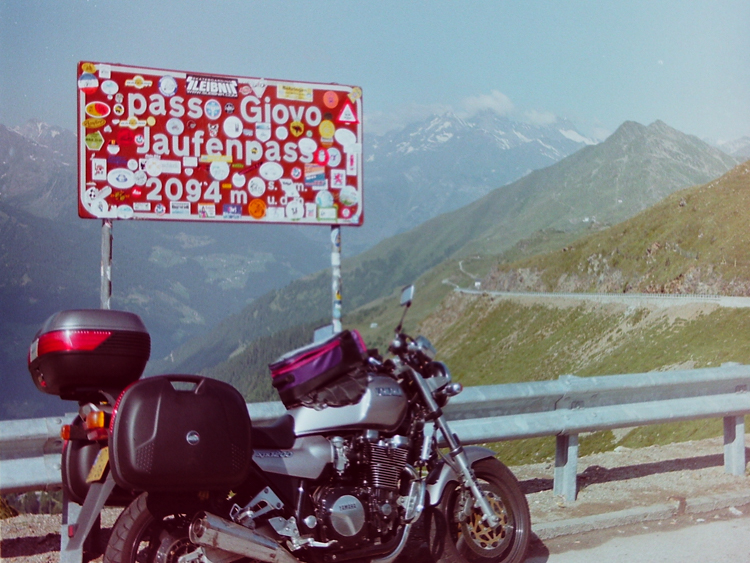
Have bike, will travel!
